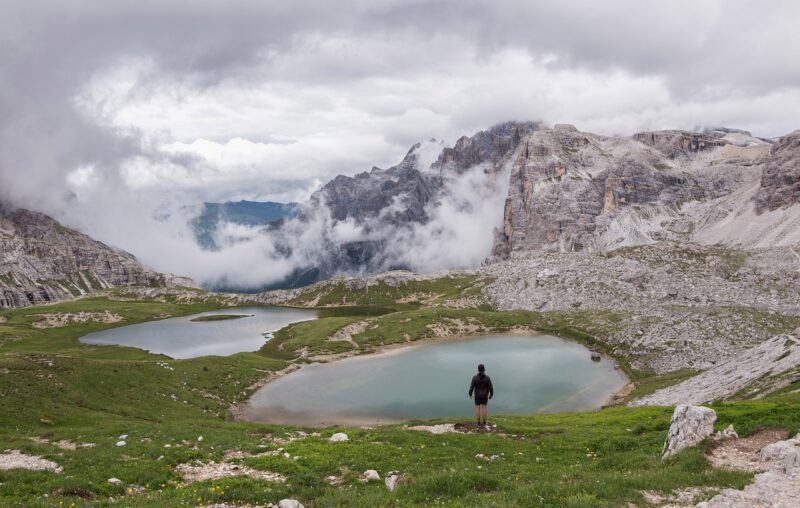Why Hiking is a Great Hobby and How to Get Started on Your First Trail
November 13, 2024

Hiking is more than just a pastime; it’s an invigorating journey for the body, mind, and spirit. Whether navigating peaceful wooded paths, scaling rocky mountains, or traversing vibrant meadows, hiking provides a dynamic way to explore and experience nature. This article will delve into why hiking is a fantastic hobby and offer a comprehensive guide on how to embark on your very first trail.
1. The Benefits of Hiking
Hiking comes with a plethora of benefits that enhance physical health, mental well-being, and social connections.
Physical Health Benefits
Hiking is an excellent form of exercise that offers numerous physical health benefits:
- Cardiovascular Improvements: Regular hiking strengthens the heart, lowers blood pressure, and improves cholesterol levels, reducing the risk of heart disease.
- Strengthens Muscles: Hiking engages major muscle groups from legs to core and even upper body, especially if you’re navigating uphill terrains.
- Weight Management: It’s a great way to burn calories and maintain a healthy weight, with a 150-pound person burning around 430 calories per hour on moderate trails.
- Enhanced Balance and Coordination: Navigating varied terrain improves overall balance, coordination, and stability.
Mental Health Benefits
In addition to physical health, hiking greatly enhances mental well-being:
- Stress Reduction: Immersing yourself in nature reduces stress and anxiety levels, providing a necessary escape from daily pressures.
- Improved Mood: The release of endorphins during physical activity can elevate mood and even alleviate symptoms of depression.
- Boosted Creativity: Studies show that time spent in nature can enhance creative thinking and problem-solving abilities.
Social Benefits
Hiking can also foster meaningful social connections:
- Community Building: Group hikes encourage bonding and camaraderie among participants, whether friends, family, or fellow enthusiasts.
- Shared Experiences: Exploring trails together creates cherished memories and shared adventures that strengthen relationships.
2. How to Get Started Hiking
Ready to strap on your hiking boots and hit the trail? Here’s a step-by-step guide to help you launch your hiking adventure:
Step 1: Start Small
As a beginner, opt for easy and moderate trails. Look for local nature preserves, parks, or hiking guidebooks that highlight beginner-friendly paths. Apps like AllTrails can help you find suitable trails near you.
Step 2: Gather Essential Gear
Having the right equipment can enhance your experience. Here’s a basic gear checklist for beginners:
- Hiking Boots or Shoes: Comfortable, durable footwear designed for off-road trails.
- Appropriate Clothing: Dress in layers with moisture-wicking fabrics that regulate temperature.
- Backpack: A comfortable bag to carry your essentials, including water and snacks.
- Hydration: Carry enough water to stay hydrated, especially on longer hikes.
- Navigation Tools: A map, GPS device, or hiking app to find your way safely.
Step 3: Choose the Right Time
Plan your hike during the day when conditions are optimal. Early mornings or late afternoons often offer cooler temperatures and less crowded trails. Remember to check the weather and be prepared for sudden changes.
Step 4: Listen to Your Body
Start at your own pace and pay attention to your body’s signals. If you’re feeling fatigued, take a break. Gradually increase the difficulty of your hikes as your strength and endurance improve.
Step 5: Research Local Trails
Utilize websites, forums, or hiking blogs to read reviews and get insights on trail conditions, challenges, and scenic views. Connecting with local hiking groups can also provide support and encouragement.
3. Essential Safety Tips for Hikers
Ensuring a safe hiking experience is paramount. Here are crucial safety tips:
- Stay on Marked Trails: Avoid venturing off paths to minimize the risk of getting lost or causing damage to the ecosystem.
- Inform Someone: Always let a friend or family member know your hiking plan, route, and expected return time.
- Pack a First Aid Kit: Include essentials like band-aids, antiseptic wipes, and any personal medications.
- Watch for Wildlife: Respect wildlife by observing from a distance and securing food items to prevent attracting animals.
- Practice Leave No Trace Principles: Always clean up after yourself, pack out what you bring in, and respect the natural environment.
4. Hiking Community and Events
Joining the hiking community can enhance your experience:
- Local Hiking Groups: Many regions have organized hiking clubs that schedule group hikes, supporting both novice and experienced hikers.
- Hiking Events: Attend hiking events or workshops to learn skills and meet fellow outdoor enthusiasts.
- Online Communities: Engage with online forums or social media groups focusing on hiking; members often share tips, stories, and advice.
Conclusion
Hiking is a rewarding hobby that promotes both physical and mental health while allowing you to connect with nature and like-minded individuals. By starting small, gathering the right gear, and observing safety tips, you can embark on an enriching journey through the great outdoors. As you progress and gain confidence, you’ll find yourself yearning for the next trail, eager to explore the natural beauty our world has to offer.
Whether you’re looking to get fit, clear your mind, or simply enjoy the beauty of nature, hiking offers a path to meet those goals and more. So lace up your hiking boots, grab your backpack, and step onto the trail of adventure waiting for you!







